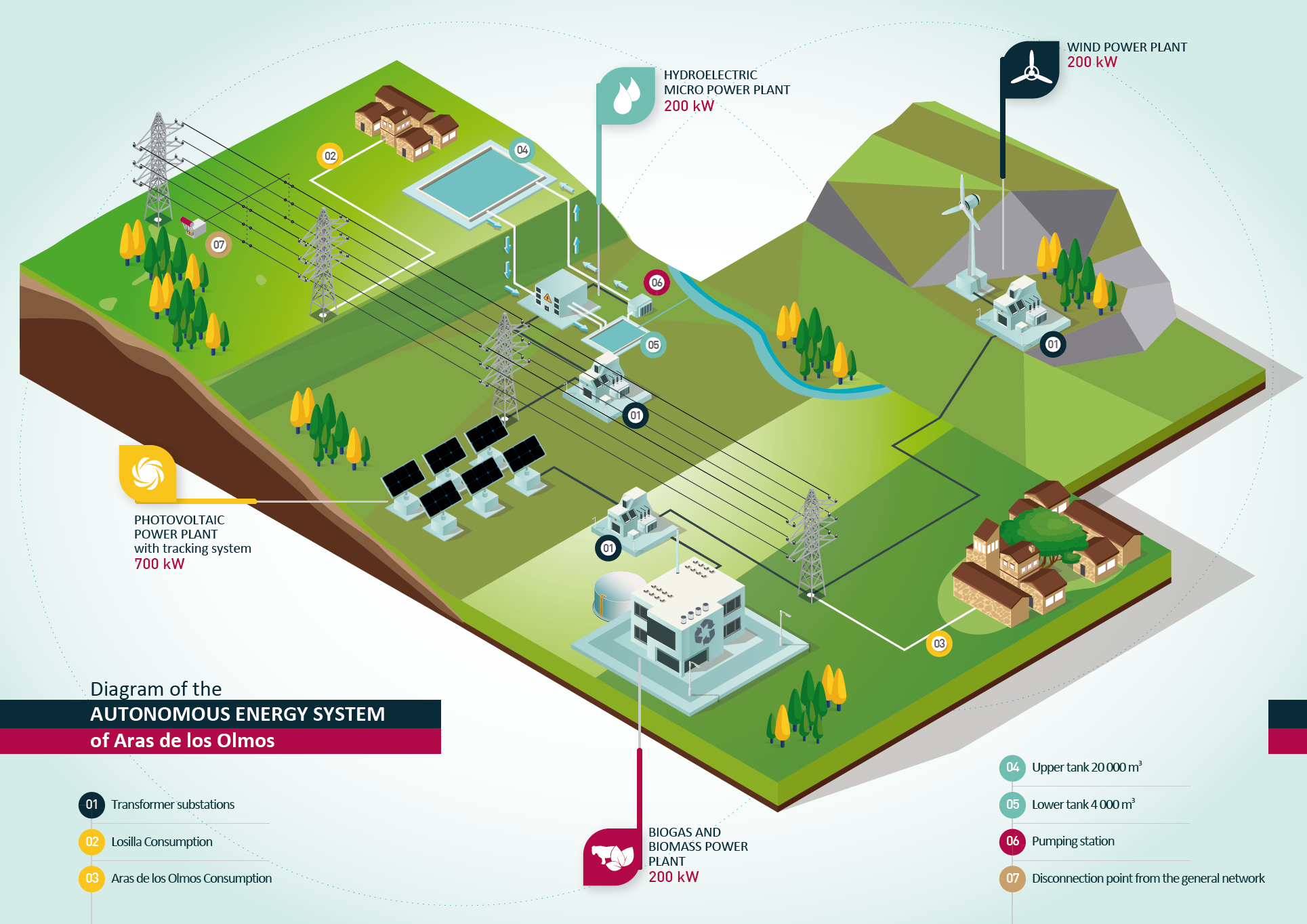INASOLAR: Infrastructure for sustainable electricity self-supply with renewable sources in the municipality of Aras de los Olmos.
Energy self-sufficiency implies the generation of enough electricity for own use without the requirement of energy from other external sources. In this way, the energy supply is created and consumed by the municipality itself.
The installation of systems that allow this type of energy model based on self-consumption is becoming more and more widespread, with the goal of:
- Reducing energy dependence on the electricity grid.
- Reduce environmental impact.
European directives, which seek a transition from the current fossil fuel-based energy system to a new system based on renewable energies, are boosting this process.

Source: www.un.org
For this purpose, one or a combination of renewable energy sources is usually used, including:

Photovoltaic solar energy

Available anywhere, especially in high irradiance locations

Low cost

Not manageable and only produces during sunshine hours
Wind energy

Available in most areas with moderate wind conditions

Day and night production

Unmanageable and with high variability


Biogas energy

Manageable

Stable voltage waveform via synchronous generator

Improves the reliability of the power system

Requires large areas of land
Hydroelectric power

Manageable

Can be used as storage of surplus energy

High cost and high environmental impact

INASOLAR is presented as a pioneering R&D&I project, which aims to develop the necessary infrastructure to achieve self-sufficiency in the municipality of Aras de los Olmos, located in Valencia. It is intended that this system can be replicated by other municipalities seeking to be self-sufficient, with the numerous advantages that this entails.



